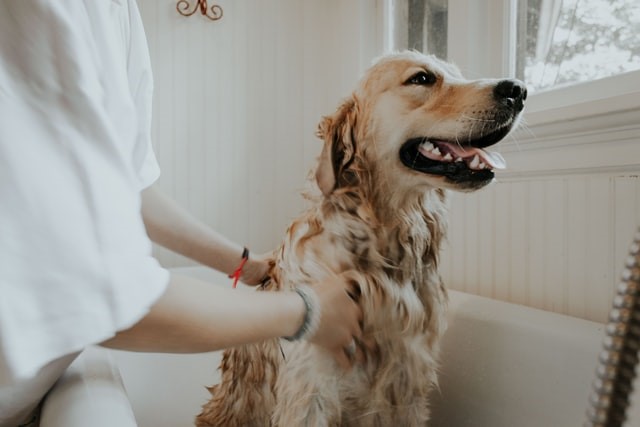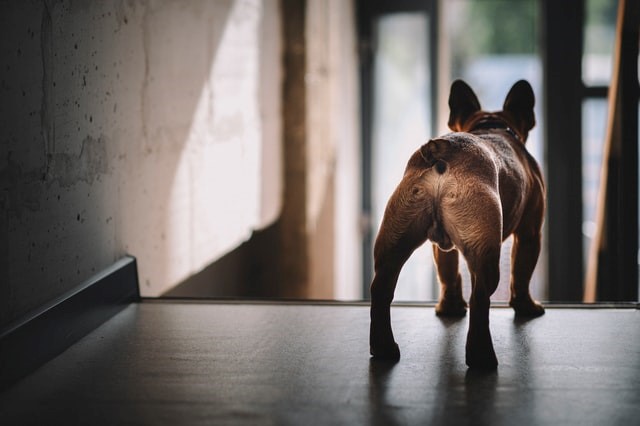How to Get Rid of Fishy Smell from Dog
Dogs are naturally pretty smelly creatures. In fact, they even seem drawn to odors that most people find unpleasant – for dogs, sometimes the stronger and smellier the aroma, the better!
At this point, you are probably used to the smells of their favorite treats (the liver ones can be especially stinky!), their gas, their bowel movements…but a fishy smell? Where could that be coming from, and how do you get rid of it?
If you are looking to identify and eliminate that fishy smell coming from your dog, read on for our guide on how to get rid of fishy smell from dog.
Why Does My Dog Smell Fishy?
The fishy smell is typically for one of two reasons: your dog has been rolling around in some fish or having problems with their anal glands. We will show you ways of dealing with both problems, but since you likely know if your dog has been rolling around in fish, let us first look more closely at the anal gland issues.
What Are Anal Glands and Why Do They Smell?
Also called anal sacs, a dog’s anal glands are located on either side of its anus. These glands have fluid inside that gives off a strong, fishy odor that helps distinguish your dog from others.
This smell is unique to your dog, so they can use it to mark their territory when relieving themselves (side note: this is what dogs are smelling when they insist on sniffing each other’s bottoms!).
The dog’s anal gland usually function by releasing a small amount of this smelly fluid each time your dog has a bowel movement, but for some dogs, the glands do not empty enough or at all, leading to a buildup of fluid.
When there is a buildup, the anal sac may leak, which leads to this generally fishy odor coming off of your dog.
How Do I Know If My Dog’s Anal Glands Are a Problem?
Besides the fishy odor, you may notice the following behaviors from your dog:
- Scooting their bottom across the floor
- Trying to lick, bite, or scratch at the glands (if they have been licking the area, the dog’s breath may also have that fish smell)
- Issues with moving their tail
Can I Express My Dogs Anal Glands Myself?
You can! However, you do need to watch out for some things. A dog’s anal gland can get infected, impacted, and grow tumors, so expressing the dog’s glands is probably better left to the vet if you suspect any of these issues.
How to Get Rid of Fishy Smell from Dog
Now that you know why your dog has a fishy odor, whether it is because they have been rolling around in fish or they have leaking anal glands, let us look at how to get rid of that smell.
How to Express Your Dog’s Anal Glands
If you have determined that your dog has an anal gland issue, and you do not suspect this is due to any serious problems, then you can help them out by expressing those glands yourself.
Step 1: Gather materials
- Gloves
- Lubricant
- Paper towel
Step 2: Locate anal glands
Have your dog stand on all fours and hold up its tail (you may want to have a partner to hold your dog still for this). Lubricate your gloved index finger and insert it into your dog’s anus. Now, on the outside of the anus, place your thumb and bring it together with your index finger.
Rub both fingers along the one side of the anus until you locate the glands, which should be at about 4 o’clock and 8 o’clock. They could be small and firm or larger and squishy, depending on how full the glands are and the size of your dog.
Step 3: Squeeze the fluid out
Once the gland has been located, gently apply pressure to it until the fluid starts to come out – the hole for the fluid will be just inside the anus. In front of the area, hold up a paper towel to catch any squirting fluid – it can come out quite forcefully and even backward!
Step 4: Examine the fluid
If the fluid is normal, it should be brown, thin, and of course, smelly. If you find that the fluid is chunky, thick, or green, yellow, or gray, then there may be another kind of infection and you should get your dog to the veterinarian as soon as possible.
Step 5: Repeat
Repeat this procedure to express the anal gland on the other side of your dog’s anus.
How to Make Your Own Deodorizing Shampoo

Your dog will likely still have some fluid around their bottom after you have expressed their glands, so you may want to remove that smell with some deodorizing solution. Also, if your smelly dog has just been rolling around in fish and that is the cause of the smell, this solution should work for that too.
Step 1: Gather materials
- 4 cups warm water
- 1/3 cup glycerin
- 1 cup of dish detergent (lemon works best)
- 1 cup vinegar
- Container
Step 2: Mix ingredients
Combine all ingredients in the plastic container. You could use something like an old shampoo bottle and just shake it all up (if you plan on keeping any leftovers, though, be sure to label it!).
Step 3: Shampoo dog
Lather your dog in the solution, concentrating on the areas where the smell seems to be the strongest.
Step 4: Rinse
Rinse all of the solution out of their coats.
Preventing Fishy Odors
This is easy if your dog has just been rolling around in fish – do not let them! But if the smell is the result of anal gland issues, then there are a few other things that you can try:
- Make sure your dog is getting enough exercise. Overweight dogs are more likely to have problems with their anal sac
- Add bulk to your dog’s waste by ensuring there is enough dietary fiber in the dog’s diet
- Check your dog’s bowel movements. If they seem to be abnormal regularly, then they may be having health issues
- Ensure that they always have clean water to drink


